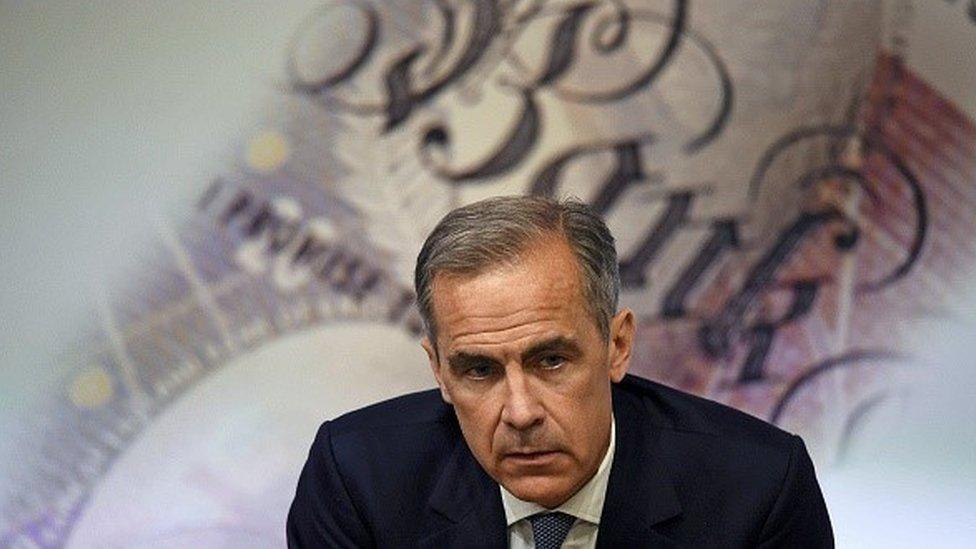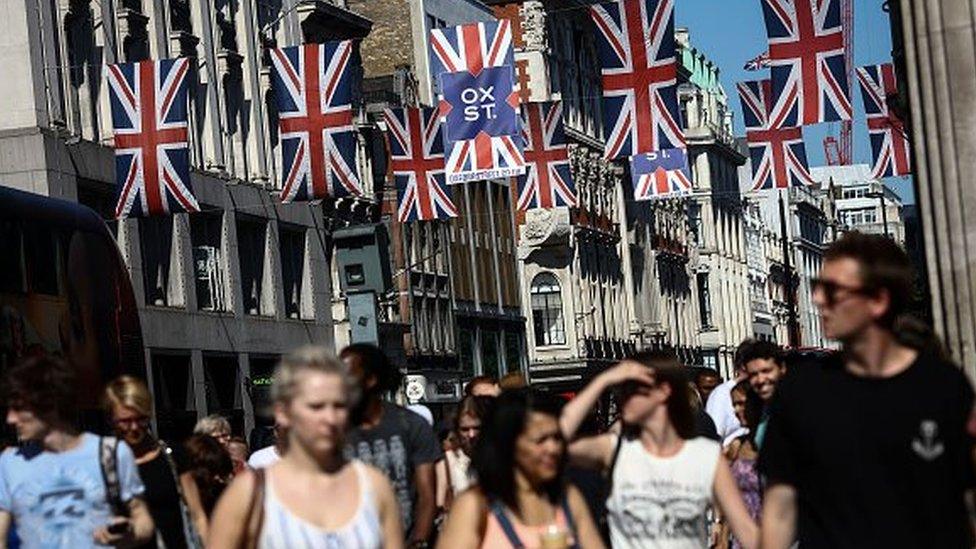Evidence of an economic slowdown is growing – over to you Mr Carney
- Published
- comments

The lowest figure since February 2009; the biggest fall since the figures started to be collected in 1996.
For those hunting for poor economic data since the referendum result, today's Purchasing Managers' Index for the crucial services sector certainly provides significant pickings.
And it builds on pretty poor figures from the construction and manufacturing sectors.
It is now clear from the data that has been published that economic activity slowed markedly in the weeks following the referendum.
Of course, part of that is down to uncertainty about the shape of the economy as the UK negotiates its way out of the European Union.
Questions abound.
What kind of trade deal will we have with the rest of the European Union?
What effect will the dramatic fall in the value of sterling have - from exporting industries (likely to be pretty positive) to inflation (which is likely to be pushed up as import costs rise)?
Economic shock
Answers to those questions will only become clear as the shape of the Brexit negotiations crystalises and more data becomes available.
But it is important to remember that the economic shock we are seeing evidence of is not a simple reaction to Brexit.
It is also a reaction to the political turmoil that followed, which to all intents and purposes gave the UK a new government.
So, a political shock built on a referendum shock.
That could mean - and it is only a "could" at this stage - that with a greater level of political certainty, businesses will feel more comfortable about investment decisions over the next few months than they did during the torrid weeks of July.
Recession ?
Economists are still hedging their bets.
UBS suggests there "may" be a recession.
The National Institute of Economic and Social Research puts the probability of a recession over the next 18 months at "evens".
Growth is likely to fall, by how much is not yet clear.

What does this mean for the Bank of England's interest rate decision tomorrow?
Many economists agree with Chris Williamson, the chief economist at Markit, which compiles the Purchasing Managers' Index, that a cut is a "foregone conclusion".
Although I wouldn't go quite that far, it is clear that Mark Carney, the governor, favours more monetary easing up to and including an interest rate cut and has significant allies on the Monetary Policy Committee such as Andy Haldane, the Bank's chief economist.
The MPC's nine members voted 8-1 against a cut at its July meeting.
Inflation
Expect the 1 - the external member of the MPC, Gertjan Vlieghe, who argued for a 0.25 percentage point cut in July - to be joined by many more this time around.
There are a couple of flies in the "let's cut interest rates now" ointment.
Yes, the economy has slowed, but can a small cut in interest rates - from already historically low levels - really make a difference?
And second, inflationary concerns are growing.
The Markit report suggests that "cost pressures" have hit a three month high, and with the pound weak, it is likely that as well as downgrading growth forecasts the Bank will also warn tomorrow that inflation could rise more rapidly than expected.
Particularly if global growth strengthens.
The Bank is treading a delicate line.
Position monetary policy so that it supports the economy and mitigates any effects of uncertainty.
But don't make policy so loose that inflation momentum builds quickly, making it far harder to, ultimately, control.